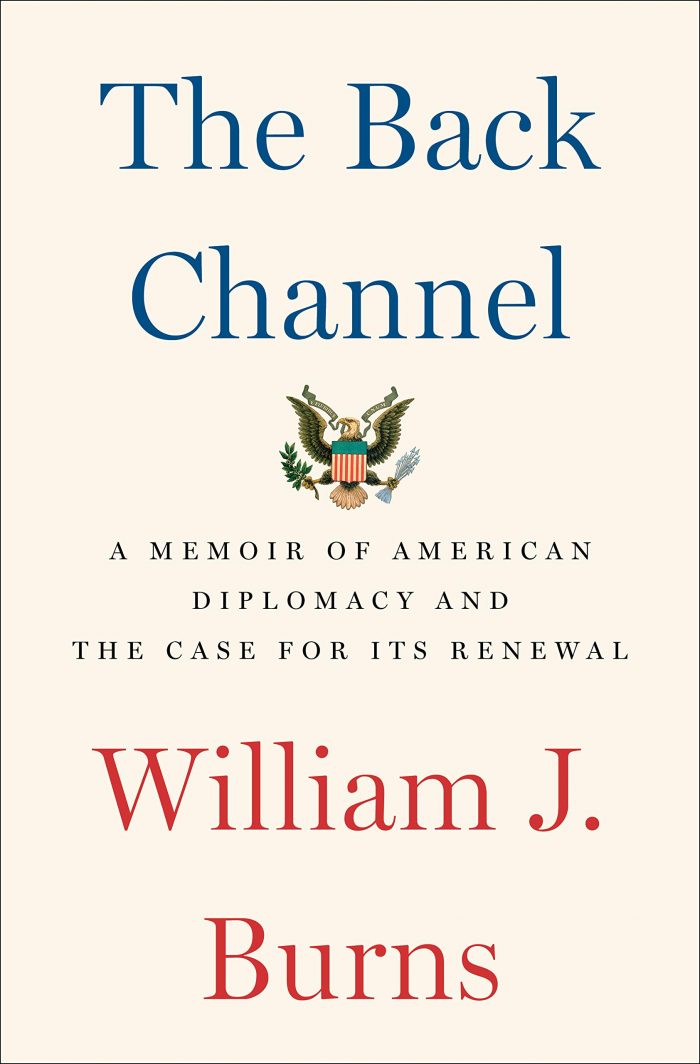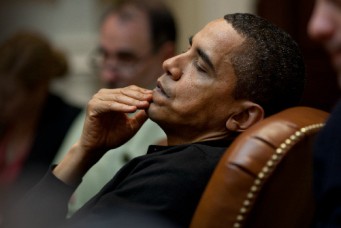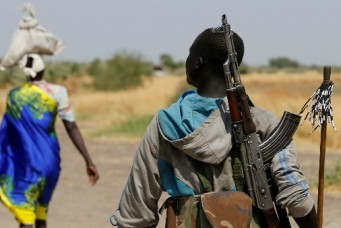A Man for All Ages
Leading diplomat and public servant William Burns calls for a reinvention of American foreign policy.
The Back Channel: A Memoir of American Diplomacy and the Case for Its Renewal. By William Burns, Penguin Random House, New York, 2019, 512 pp.
Ambassador Bill Burns retired in 2014 as the most accomplished U.S. diplomat of his generation. In the early part of this century, no diplomat—and perhaps no American—had a closer view of the inner workings of both the George W. Bush and Barack Obama administrations’ foreign policies. Burns began his close associations with the power elite in Washington with his 2001 appointment as the State Department’s Assistant Secretary for Near East Affairs and retired as only the second foreign service officer to become deputy secretary. His 33-year career corresponded with the apex of American power in the early 1990s and the denouement that followed. Burns’s rise through the diplomatic ranks would be of interest to any foreign service recruit. Just a decade into the foreign service, Burns had already served as senior director at the National Security Council and led the policy planning staff at the State Department. However, two-thirds of his book, The Back Channel: A Memoir of American Diplomacy and the Case for Its Renewal, is dedicated to the latter half of his career and this will be of most interest to students of American foreign policy. Burns tells his story with grace and aplomb. In so doing, he explains America’s foreign policy during the beginning of the twenty-first century— from September 11 to the 2003 war in Iraq to the initial 2013 Iran nuclear agreement, and much in between.
Three months into his tenure as Assistant Secretary of State for Near Eastern Affairs, the United States and the world were turned upside down: just hours after the World Trade Center towers and Pentagon were hit by airliners on 9/11, Burns wrote a hand-written memo to Secretary of State Colin Powell on a yellow legal pad calling for a calibrated and measured response that built on partnerships with Europe and the Middle East. This was advice the Bush II White House would not heed. In the year-anda-half between the September 11 attacks and the March 2003 U.S. invasion of Iraq, Burns worked with increasing urgency to highlight the risks of invasion and to support Powell’s internal efforts to counter the drums of war coming from Vice-President Dick Cheney and Secretary of Defense Donald Rumsfeld. Burns’s efforts culminated in an internal memorandum co-written with two colleagues entitled the “Perfect Storm.” Seventeen years later, the “Perfect Storm” is a fascinating document in which Burns warns of the major dangers a U.S. invasion of Iraq would entail. Unfortunately, the second Bush administration treated diplomacy as a sideshow. By Burns’ own account, his efforts had no effect in halting the rush to war.
Eight years later, Barack Obama entered the White House as a realist with a cautious temperament, like Burns himself. Burns sympathizes with Obama’s efforts to manage and preserve American power in a competitive world. He expresses admiration for Obama’s political courage to enter diplomatic negotiations with Iran that eventually culminated in the 2015 Iran nuclear agreement. Of the Obama administration’s operation that killed Osama Bin Laden, Burns writes: “Never have I been prouder of the U.S. military, or of a president who had so coolly taken such a big risk.”
However, Burns laments that Obama’s deliberative approach could also could lead to inaction. Putting his strategic long game into practice proved difficult. Surveying the aftermath of the 2011 Arab uprisings, Burns’s judgment is harsh. Washington’s internal deliberations after the ouster of President Mohammed Morsi in Egypt antagonized the Egyptian military, Islamists, and liberal revolutionaries alike. Syria’s misery was “an American policy failure”.
However, if Obama’s policy failures in the Middle East were sins of omission— the failure to act—Burns sees the second Bush administration as committing the far graver sin of commission. The second Iraq war was a disaster from which neither the United States nor the Middle East have yet recovered, writes Burns.
The “Perfect Storm” was a brilliant memo. However, Burns now acknowledges he did not take a direct enough stand against the war. He admits to pulling punches in hopes of getting a better hearing. Burns’s extended self-reflections on the episode highlight the complicated personal, political, and professional tradeoffs that come with public service. The ambassador laments, in a meditation that should be required reading for any public servants languishing in the Donald Trump administration, that his failure to more forcefully oppose the Iraq war remains his biggest professional regret.
Burns is concerned about the devaluation of diplomacy among the public and policymakers alike. This exacerbates the militarization of U.S. foreign policy and short-circuits strategic thinking about American interests. Burns is also disdainful of the fads that permeate much of the analysis around foreign policy— from counterinsurgency in the mid2000s to countering violent extremism today. He worries about the steady growth of National Security Council and executive branch micromanagement of foreign policy.
Unlike most diplomats, Burns spent two-thirds of his career in Washington. He managed the repeated transitions between parties with great dexterity, even as he rose to higher positions of authority. Readers looking for the insider score-settling that populates most D.C. memoirs will be disappointed. Washington insiders will discern that a few of the secretaries of state Burns served under are gently ribbed with faint praise. Spoiler alert: James Baker, Colin Powell, and John Kerry come in for the highest approval. The first Bush administration sets the foreign policy example for its successors.
This genteel attitude toward Washington decision-makers of both parties is refreshing. However, this same courtesy may also deprive readers of a fuller understanding of just how the American foreign policy machinery—and the decisions that emanate from it—arrived, step by step, at such a distressed state in 2019. Burns clearly sees President George W. Bush’s decision to invade Iraq as the original sin. Yet, the decline of the American-led global order began long before 2003, and the rise of Trump is as much a result of this order’s collapse as it is a contributing factor now to America’s decline.
When Burns’s criticism finally comes, it comes as a shock to the reader. He describes Trump’s presidency as narcissistic, foolish, untethered to history, and unconnected to strategy. When the courteous Bill Burns uses this kind of language to describe an American president, Americans should listen.
The Back Channel ends with thoughtful recommendations for restoring America’s diplomatic capacity. Burns’s broad idea is to reinvest in the State Department and to pursue a diplomatic approach which pairs Obama’s more restrained strategic focus with renewed attention on pressing transnational issues such as technology, economics, energy, and climate.
Anyone interested in American foreign policy should ponder these ideas. A great deal of their appeal derives from Burns’s sterling record as a public servant. Yet, in a political climate, and indeed popular culture defined by the American president’s unfathomable personal insecurity and grotesque self-absorption, it is worth hoping that a new generation of American diplomats will find inspiration in this more modest model of public service.
The views expressed in this article are not necessarily those of the Rockefeller Brothers Fund or its trustees.
Perry Cammack is the peacebuilding program director at the Rockefeller Brothers Fund. He was formerly a fellow in the Middle East Program at the Carnegie Endowment for International Peace and a lecturer at the Elliott School of International Affairs at George Washington University. He served on the policy planning staff in the office of U.S. Secretary of State John Kerry from 2013 to 2015 and as a senior professional staff member for Senator Kerry on the U.S. Senate Committee on Foreign Relations from 2009 to 2012. On Twitter: @perrycammack.
Read More



